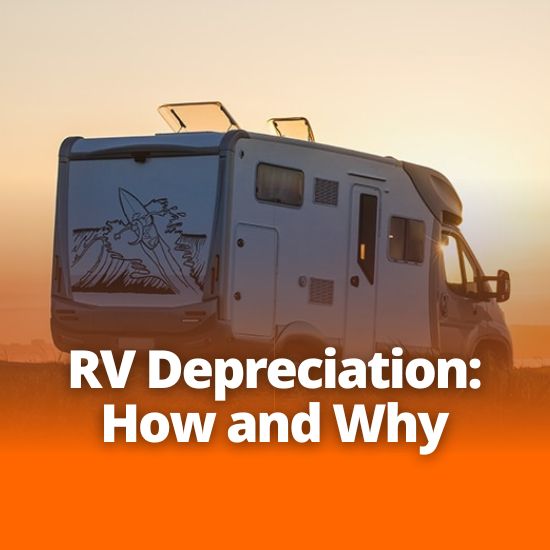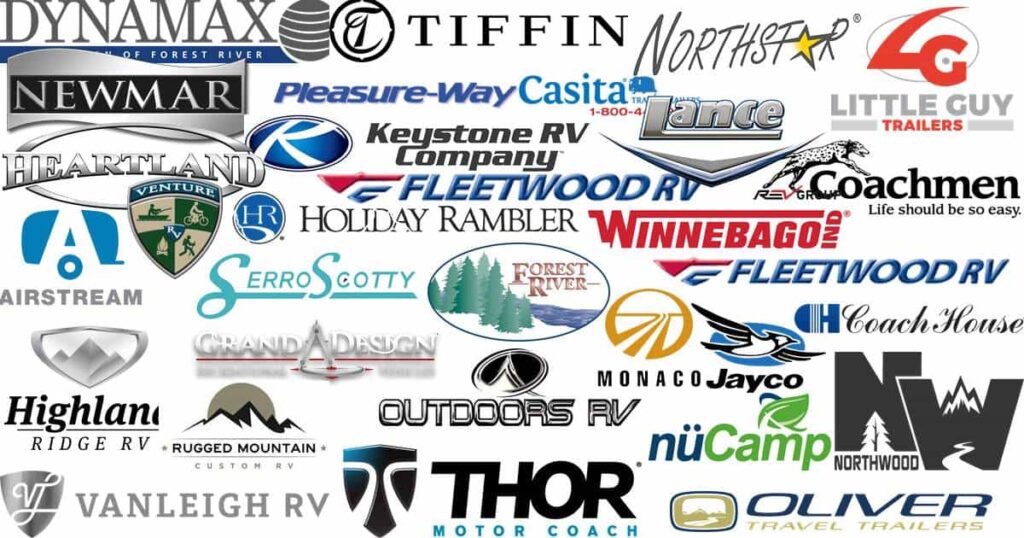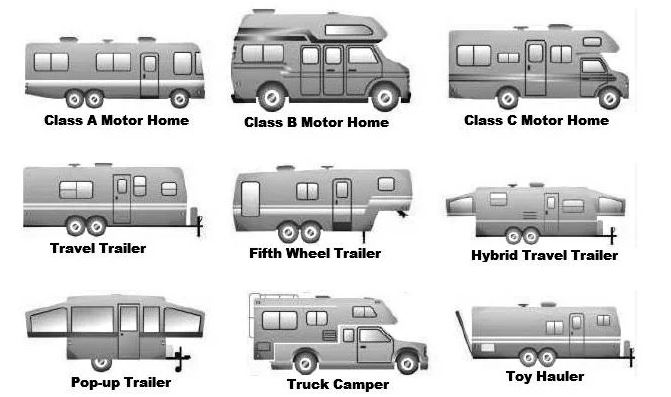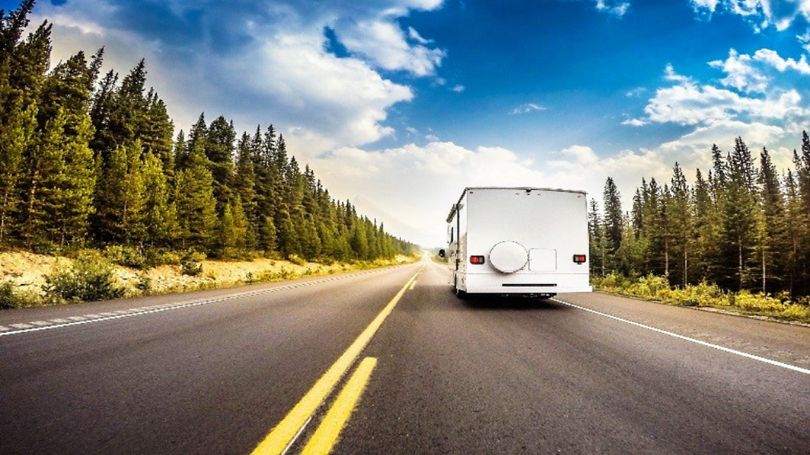
RV Depreciation: How and Why
The quick and dirty is that 99% of vehicles, trailers and the sort lose value the second they leave the lot. Unlike brick-and-mortar real estate, even if you live in your rig full time it doesn’t carry value like a house does. It might not be a huge deal if you’re planning on keeping the same unit for a long time, but this still means a brand new RV is never actually a good investment. But hey, we’re a used RV dealership of course we’re going to say that! So, let me prove it to you, and you can check my statements.
Let’s begin with stating that there is no one reason your RV or trailer is going to lose value over time. We’re gonna break that down for you as simply as we can without heaps of legal-ese and equations to wade through.
Stats and Number Stuff
To get this out of the way, we’re going to go through some average numbers of RV depreciation. These aren’t hard figures mind you, but a general gist and ratio of how quickly a brand spanking new RV or trailer loses value.
The first year will hit you the hardest, with a new model dropping approximately 20% of their value even if you’ve only taken it out once! Some can go down 30% or more. But that’s the steepest drop, afterwards the rate slows. About 10% is lost in the second year and decreasing as time goes on. By year five you’ll probably only be losing 5% of its value annually. Still not ideal, but if you’ve ever owned a car you’re already familiar with this slow rate of decline.
On the flip side, this means that these older trailers can be bought at a great comparative price!
Factors
So, what contributes to this depreciation? That would be: damage, brand, type, expired warranties, market flux, and mileage.
Damages
This is a big one, as being transparent about damages, particularly major ones like if your unit was involved in an accident in the past, is super important. Buyers may be more wary of units that have been involved in accidents but omitting major incidents is a big no-no (or as the kids say: it looks hella shady). Reports can often, and easily, be looked up in most cases.
If you’re looking to sell your trailer or RV and there is some general wear and tear or any major damages, have them fixed to the best of your ability (and within reason, things like scuffs on the wheel wells are going to happen so I wouldn’t worry about that) and provide any and all info about fixes, restorations, and improvements. It doesn’t hurt to keep all the paperwork on maintenance and updates as well, it can really help when getting your RV appraised.


Brand
This comes down to brand reputation, the better the rep the better the resale value. Buying a hugely popular (and reliable) brand can increase the number of times it can be resold without losing a lot of value. A rare, vintage, or unique design RV or trailer is more of a coin toss over time, but you may even be able to resell it close to the original price in rare instances!
Some brands that hold good value over time include: Keystone, Grand Design, Winnebago, Forest River, Jayco, and Airstream. *Note that this is not a comprehensive or firm list.
Type
Along with the brand we have to look at the type: motorized or trailer, and their variations. Motorhomes have a higher depreciation rate because they tend to break down faster as you have your living space and vehicle connected. Like a Rube Goldberg machine, an issue with one will typically affect the other. However, if you’re comparing motorhome styles it usually goes Class A, C, then B for the fastest to slowest depreciation rate.
Then we look at towables. Without an engine they are much easier to maintain and therefore resell. They also tend to last longer for the same reason; however, the larger or more elaborate units have more areas where failures can occur and so may depreciate faster than smaller, simpler trailers. So again, going by rate of depreciation from fastest to slowest, towable model styles go: fifth-wheel, toy-hauler, travel trailer, and pop-up/tent/A-frames. However, again this can switch depending on size, weight, design, year, and brand so this is not a fixed list and different options and variations of these will still allow value to be retained over time.


Expired Warranties
Open any RV brochure and somewhere in there you’ll see the charming word “warranty.” 1 year warranty, 5 year warranty, 100 day warranty and on and on. However, when you get a used RV those warranties are most likely expired. And with that lost protection comes an increased rate of depreciation as people are less likely to be interested in a trailer or RV with less protections applicable. So, when considering selling your unit (or if you buy a new rig with the intention to sell in a few years) do all you can to make sure you stay under warranty protection where you can. Prospective buyers will appreciate the reassurance.
Market Flux
Another big reason RVs and trailers lose value so quickly is because new models are constantly being released. Even if the models are near identical one year after the other, that big “NEW” sign is pretty much impossible to compete with (we all know “new car smell” is a serious draw, like the smell of fresh baked cookies at an open house).
There are also certain times of the year where it’s better or worse to try and sell. Spring and summer are when outdoor activities start to pick up and people want to travel, so they’re looking for wheels to get on the road. Once winter rolls in you’re less likely to get interest because as all good Albertans know, once it snows the outdoors are far less tantalizing. You may still be able to sell your rig, but at a lower price than you could achieve during peak months.


Mileage
This last one shouldn’t come as a surprise; every vehicle gets some wear and tear on the road. While only fully measurable by motorized units with odometers the effects are the same: tires wear down, pieces come loose, creaks become apparent. Some buyers don’t want to invest in a well traveled unit because they worry they won’t get a lot of use out of it.
However, while mileage matters a lot for newer rigs it will become less important as time passes. Then people will care more about the year the RV hit the market than how far it’s traveled. Actually using your RV won’t ruin the value so don’t worry so much about mileage when selling an older unit.
Reducing Depreciation
With all that in mind how can depreciation be slowed? Well, there are a few ways of maintaining your RV or trailer that, while they won’t stop depreciation entirely, can help you retain value so when you do eventually choose to sell you’ll still get a decent price and the new owner gets a great camper:
- Document all damages, repairs, updates, and maintenance
- Safely store your RV when not in use (store it indoors if you can)
- Update the interior finishes and appliances to keep up with industry standards (this can be cushion foam, the microwave, mattress, etc)
- Rent out your RV to mitigate losses (however, consider other risks inherent with this before you do so).